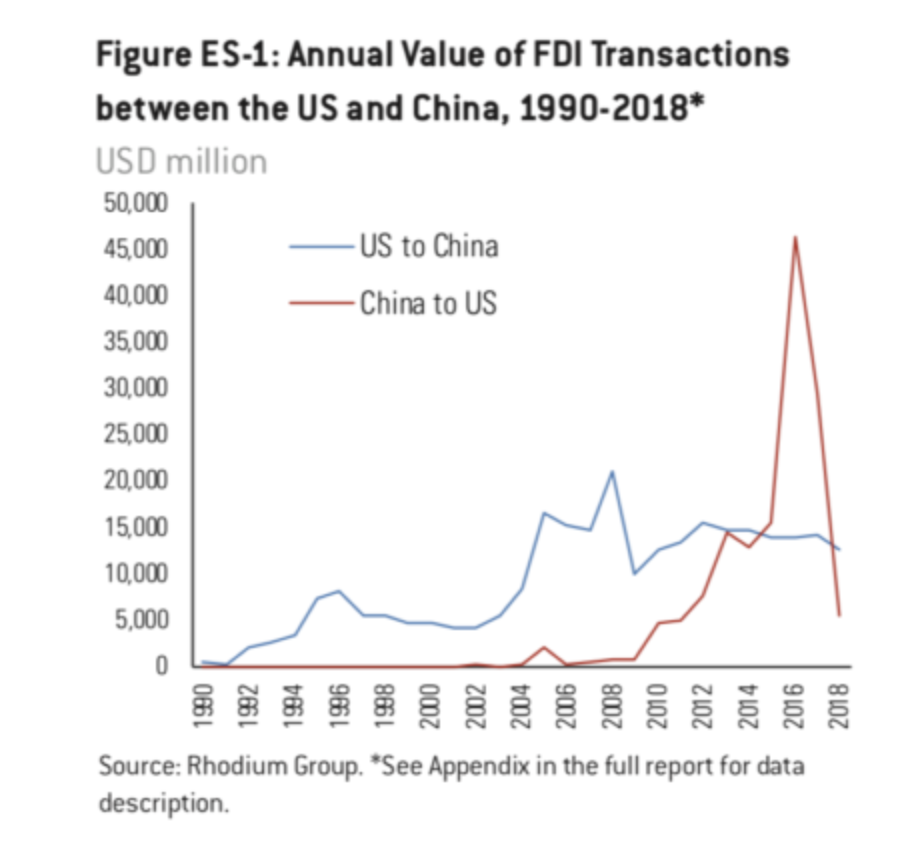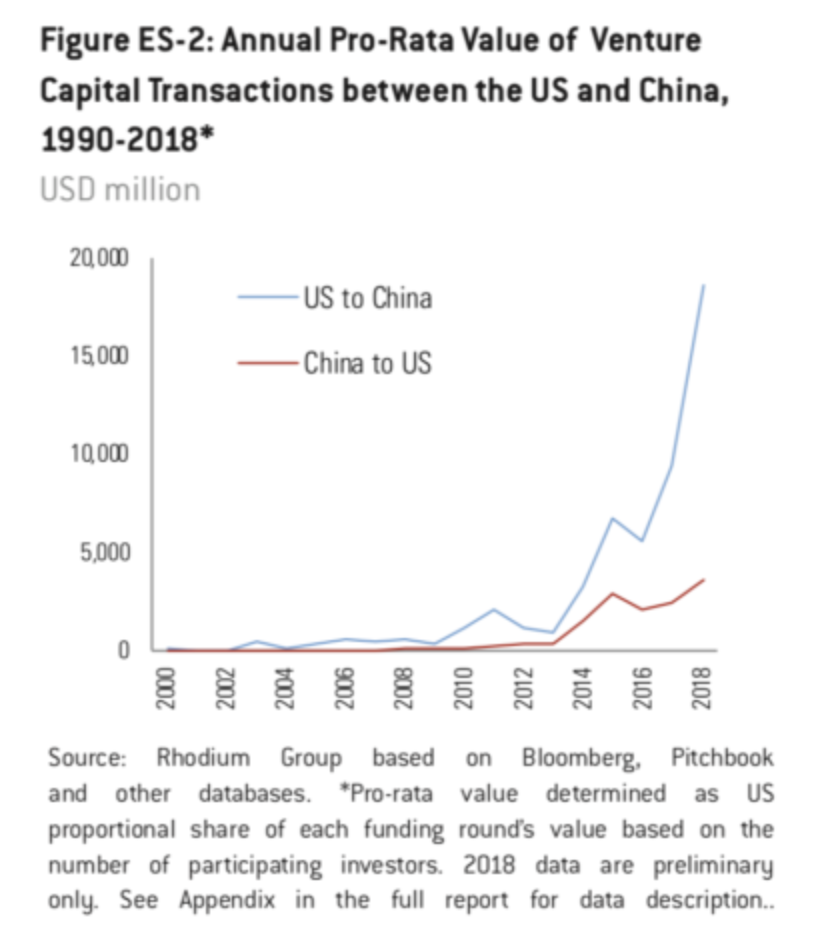International trade and foreign direct investment (FDI) are considered the key drivers of global value chains. About 11 percent of economic activity (GDP) in the U.S. is dependent on foreign markets. But when relations sour between countries as they have between two of the world’s largest economies, foreign investments can dry up and put thousands of jobs in jeopardy. That’s why reports that Chinese investments in the U.S. have plunged nearly 90 percent under President Trump’s watch is quite disconcerting. According to data by the Rhodium Group, Chinese FDI in the U.S. has fallen from a peak of $46.5 billion in 2016 to just $5.4 billion last year, sharply reversing a trend of rising investments from the Far East. Much of the blame for the massive decline can be pinned on amped up regulations, a battery of tariffs and growing unease by the U.S. on China’s expanding global influence.
The apathy is not mutual though, with American FDI into China only declining slightly from $14 billion 2017 to $13 billion in 2018. After lagging for years, China managed to overtake the U.S. in two-way FDI for the first time in 2015-- the balance has now shifted back to the U.S.
And now there are fears that some critical industries will begin to feel the heat from the ongoing capital flight. Autos, real estate, tech and agriculture are some of the industries that have benefited directly from Chinese investments that could bear the brunt of tensions between the two nations.
Meanwhile, rural states like Michigan, South Carolina, Texas and Missouri where China’s boom helped revive floundering industries could see jobs lost.

(Click to enlarge)
Source: Rhodium Group
Chinese investments likely to remain low
As the New York Times has warned, the worrying trend is likely to persist for years to come even if the two countries are able to work out some sort of trade deal soon.
After all, the Trump administration has been rapidly rolling out regulation that acts as barriers to Chinese investments including limiting technology transfer and placing Chinese firms on the blacklist.
Related: Tesla, Apple Claim China Is Stealing Intellectual Property
Rhodium Group estimates that Chinese investors abandoned deals worth more than $2.5 billion in the U.S. in 2018 due to stepped-up investment screening and unresolved issues by the Committee on Foreign Investment in the United States (CFIUS).
Further, China faces hordes of problems in its own backyard. It’s economy slowed to a 27-year low last quarter, something that prompted Trump to gloat about his tariffs having the desired effect. Meanwhile, Beijing’s controls on outbound direct investments, as well as a crackdown on highly leveraged private investors, has not been helping matters either.
Further still, the government’s deliberate tightening of liquidity has been forcing firms to clean up their balance sheets, leaving little available for investment.

(Click to enlarge)
Source: Rhodium Group
VC flows pick up some slack
All is not lost though.
Whereas direct investment flows have historically dominated deal-making between the two countries, other flows have become prominent in recent years. To wit, China’s venture capital investments especially in the American tech sector have taken up some of the slack by dwindling FDI.
Barely existent five years ago, China’s VC investments in U.S. startups has continued to soar amidst all the trade snafu. According to the Rhodium Group, Chinese-owned VC firms struck more than 270 deals in U.S. firms in 2018 worth around $3.6 billion. Chinese VC investments though continue to badly lag their American brethren with U.S.-owned VC firms pumping $19 billion into Chinese startups last year, more than double the previous year’s record of $9.4 billion.

(Click to enlarge)
Source: Rhodium Group
In the final analysis, the decline in Chinese cash is not the end of the world for the United States with FDI flows from U.K., Canada and Japan still healthy. Nevertheless, the potential disruption of rural economies in the U.S. is concerning.
By Alex Kimani for SafeHaven.com
More Top Reads From Safehaven.com:
















